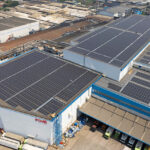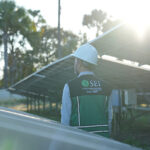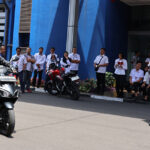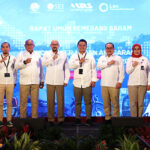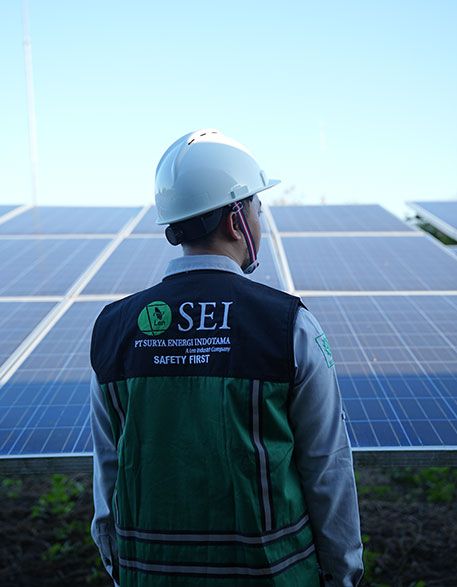Month: December 2022
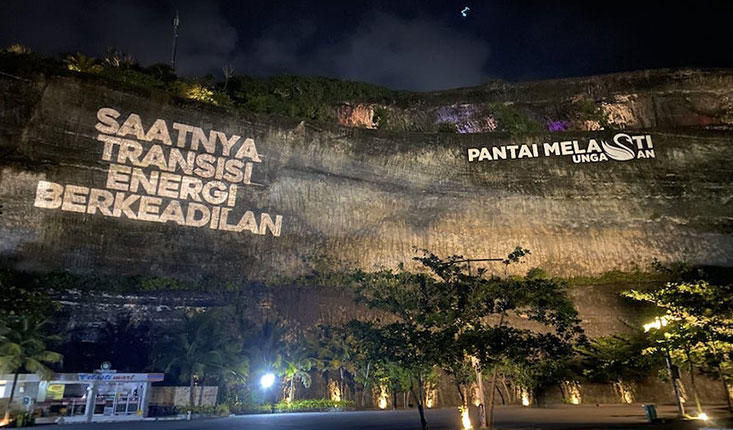
G20 and Energy Transition
The grand G20 Bali event in June-November 2022 was successfully implemented. An achievement was made with the presence of 17 heads of state participating in the summit amidst the difficult world situation. The G20 members are South Africa, the United States, Saudi Arabia, Argentina, Australia, Brazil, India, Indonesia, the United Kingdom, Italy, Japan, Germany, Canada, South Korea, Mexico, France, Russia, China, Turkey, and the European Union.
In this summit, various concrete results were agreed upon as solutions to various global issues. One of them is the sustainable energy transition. The sustainable energy transition is one of the priority issues in the G20 Summit because it is part of the key solution to overcoming the ongoing global energy crisis.
Participating countries agreed to accelerate the energy transition, including ensuring the achievement of the global sustainable development target by 2030. Especially for access to reliable, sustainable, and affordable modern energy for all. As is currently known, the sustainable energy transition has a very important role in global climate change.
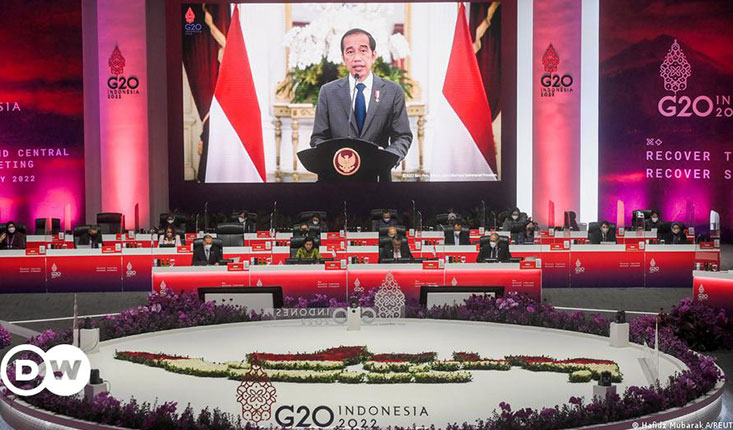
The G20 Bali Summit emphasized the importance of developing innovative and affordable technology and infrastructure. This aims to support the energy transition, including the importance of cooperation on knowledge transfer and technological innovation. In addition, the agreement continues to increase mutual investment and encourage financial flows to developing countries to accelerate the energy transition and strengthen cooperation.
The acceleration of the energy transition is based on the principle of considering the benefits for all parties without anyone being left behind in the process. These principles are:
- Strengthening trust and clarity in planning, implementation and evaluation nationally
- Improving energy security, market stability and affordability
- Securing energy supply and infrastructure
- Securing resilient, sustainable and reliable systems
- Improving the implementation of energy efficiency
- Diversifying energy systems and mix
- Reducing emissions from all energy sources
In addition, the challenges that need to be faced are funding issues in addition to technical issues such as mastery of technology, project implementation time, and the readiness of the supporting industry. The energy transition requires a lot of funds, including to accelerate the retirement of the Steam Power Plant (PLTU). In overcoming these challenges, Indonesia is trying to make a number of breakthroughs, including the issuance of Presidential Regulation Number 112 of 2022 concerning the Acceleration of Renewable Energy Development for Electricity Supply. With the presence of the G20, this is a strengthening of Indonesia's and the world's commitment to realizing a better world by accelerating the energy transition process towards clean and new renewable energy.
Berita Lainnya
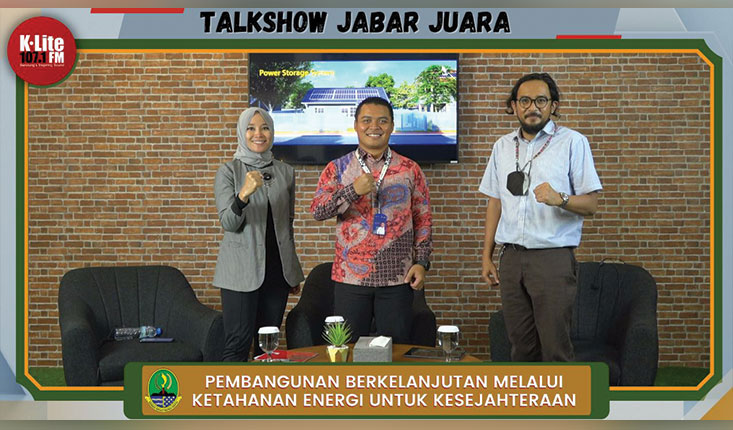
Jabar Juara Talkshow: Synergy between Government and SEI for Energy Security in West Java
BANDUNG – As one of the pioneering companies of New and Renewable Energy (EBT), SEI held a Live Talkshow with K-Lite 107.1 FM Bandung and the West Java ESDM Office with the theme "Sustainable Development Through Energy Security for Welfare" on Tuesday (13/12). The talkshow, which is part of the Jabar Juara program, took place at the SEI office.
The talkshow, which can be accessed via the Youtube channel and 107.1 FM streaming radio, was moderated by Wanda Wardhani. Also present were SEI's Marketing and Business Development Director I Made Sandika Dwiantara and the Head of Energy and Mineral Resources for West Java Province Permadi Mohamad Nurhikmah as resource persons.
In accordance with the theme of the talkshow, Permadi explained that development divided into welfare, social, and environmental aspects must be considered for its sustainability into the future. Specifically in the environmental aspect and the context of energy security, current energy use means that it must come from inexhaustible energy sources, one of which is solar. Based on the data, solar energy is still the most potential renewable energy in West Java to date.
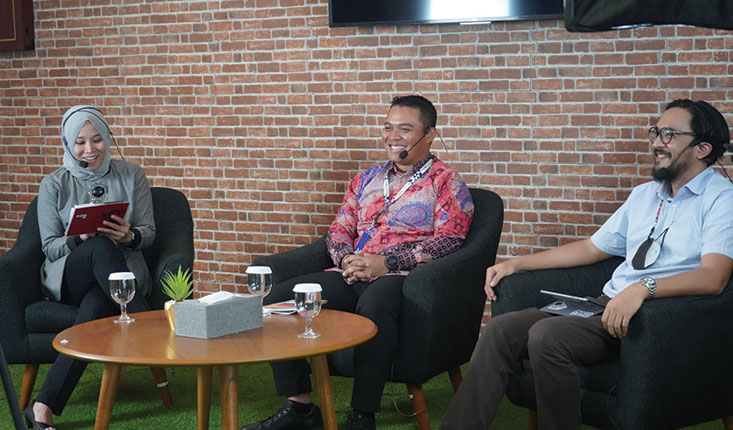
Permadi emphasized that the government is also involved in campaigning for the use of Rooftop PLTS. This is the synergy between the government, the PLTS industry players and the community that is being echoed together.
"Of course we strongly encourage the community to use this Rooftop PLTS. The Governor of West Java has also issued a circular so that regional government offices can implement Rooftop PLTS," explained Permadi.
I Made Sandika added that SEI has also contributed a lot to help government programs. Not only in West Java, but spread almost throughout Indonesia through the installation of PLTS. Starting from a small scale such as residential, to a large scale such as Independent Power Producer (IPP).
On the other hand, many questions came in via Youtube live chat and WhatsApp K-Lite as a form of enthusiasm from viewers and listeners. The questions also varied from renewable energy utilization strategies, PLTS potential in West Java, to how to order and install PLTS which made the talk show more interactive. Not a few listeners and viewers were finally interested in using Rooftop PLTS in their homes.
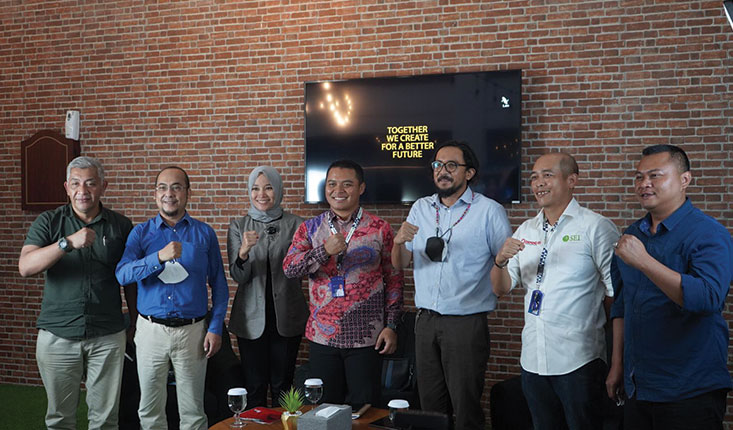
At the end of the talk show, Made invited listeners and viewers to try installing Rooftop Solar Power Plants, both industrial and residential. This is the simplest implementation to support energy security that starts from our commitment as citizens of West Java.
"The industrial sector can also use this Solar Power Plant according to its needs. This is in order to support Net Zero Emission 2060 and also support West Java as the province that is most committed to implementing a 23% energy mix in 2025. We are ready to support the West Java government in implementing the Solar Power Plant itself."
Berita Lainnya
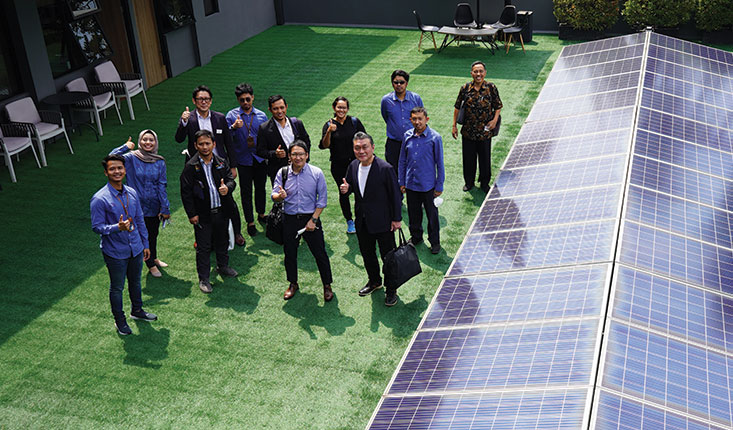
Japanese Company Kanematsu KGK Visits SEI for Cooperation in Building 10 MWp Koba Solar Power Plant
BANDUNG – The Board of Directors of SEI and SENEKO received a visit from PT Aura Energi Primanusa and Kanematsu KGK Corp. at the SEI Office on Tuesday (29/11). PT Aura Energi Primanusa itself is a renewable energy power plant development company, while Kanematsu KGK Corp. is a Japanese company engaged in the sales of machine tools, industrial machinery, energy related machinery, and peripheral equipment. The meeting during this visit discussed the plan for cooperation in the construction of the Koba PLTS located in Central Bangka, Bangka Belitung Islands Province.
This visit was motivated by the plan for cooperation in the construction of the 10 MWp Koba PLTS with the Japanese government. The Koba PLTS involving SEI and JTE as a Consortium, and SENEKO as a company established for the plan to build the Koba PLTS Project, PT Aura Energi Primanusa and Kanematsu KGK were also involved as consultants for the Joint Crediting Mechanism (JCM) from the Japanese Government.
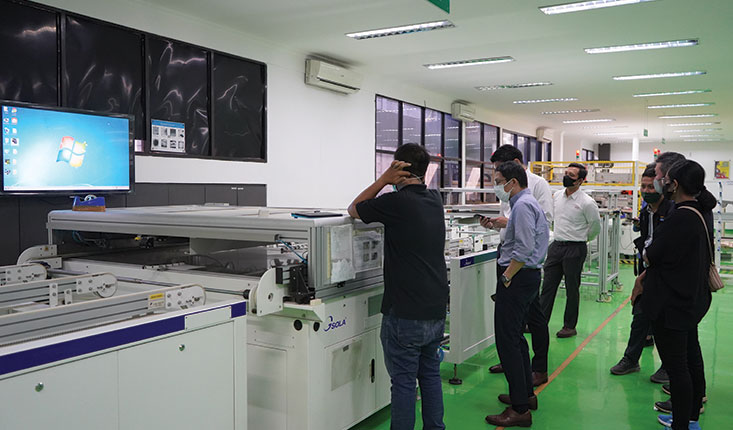
During this visit, several parties present were General Manager of Kenamatsu KGK Mr. Nagawa, Manager of Kanematsu KGK Mr. Kusu, Representative of Kanematsu Indonesia Mr. Arif Wibowo, President Director of PT Aura Mr. Yamamoto, accompanied by Director of PT SENEKO Ronggo Sulistyo, Commissioner of SENEKO Hadi Siswantoro, Director of Engineering and Operations of SEI Fajar M. Falah, Director of Development and Business of SEI I Made Sandika, and General Manager of Business Development of SEI Kurniawan Imam Ghozali.
In addition to visiting the SEI office, the group also reviewed the Len solar module fabrication located in the PT Len Industri (Persero) office area. The group was explained how solar module production is carried out at Len with quality according to standards. This visit also provided an overview that the renewable energy industry in Indonesia, especially PLTS, has high potential and a positive trend. Len and SEI are pioneering companies in the solar energy sector that have consistently supported the progress of EBT in Indonesia. It is hoped that the cooperation that will be established can run smoothly until the planned project can be implemented properly. The construction of PLTS Koba is able to provide benefits for electricity needs for the surrounding area, contribute to reducing carbon emissions, and increase carbon credit according to the world's carbon mix target.
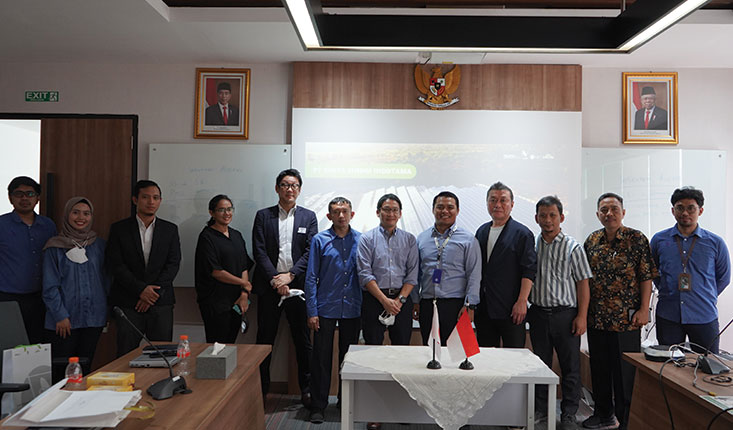
Berita Lainnya
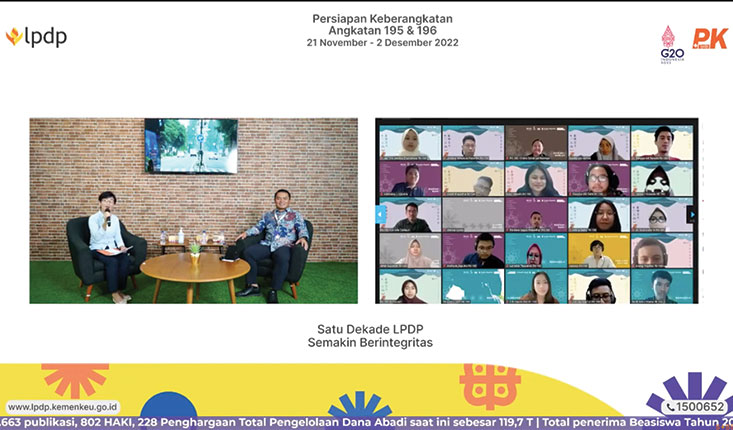
Talkshow and Institutional Visit, SEI Provides Insights on EBT for LPDP Scholarship Recipients Batch 195 & 196
BANDUNG – As one of the leading scholarship institutions in Indonesia, LPDP, which is under the Ministry of Finance, conducted an Institutional Visit and Live Talkshow with PT Surya Energi Indotama in order to provide preparation for the Departure of scholarship recipients Batch 195 & 196 which took place on Wednesday (30/11) in a hybrid manner.
Opened at 09.00 via zoom meeting, participants directly witnessed the virtual Institutional visit to the SEI Office accompanied by SEI President Director Bambang Iswanto and Director of Engineering and Operations Fajar Miftahul Falah. During the visit, participants were invited to tour the SEI office while introducing various PLTS applications implemented at the SEI Office. After the visit, participants began to listen to the Live Talkshow from I Made Sandika Dwiantara as the main speaker and Director of SEI Business Development. Also present online was Dwilarso as the Director of LPDP Scholarships.
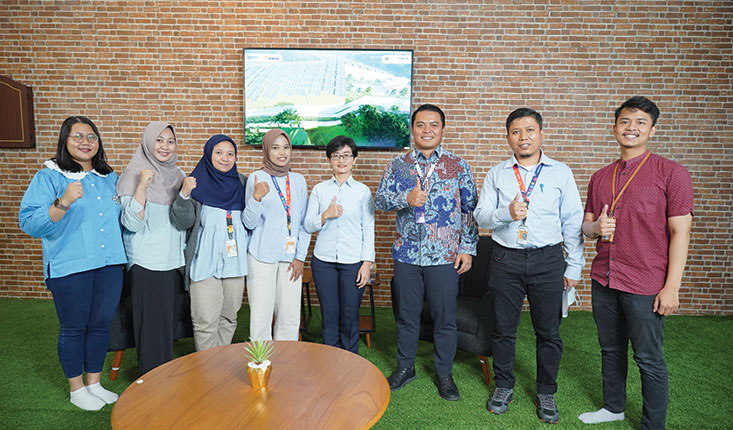
I Made Sandika explained to the participants about SEI General Information, project portfolios that have been widely spread throughout Indonesia, PLTS systems that can be provided by SEI, and Indonesia's enormous potential in developing New and Renewable Energy.
The enthusiasm of the participants was very evident from the many participants who asked questions in the question and answer session. The talk show hosted by Moderator Resna was even more interactive and informative. The various questions included the level of effectiveness of solar modules, investment costs, the contribution of PLTS in reducing carbon emissions in a building, to the discussion of the G20 Summit on renewable energy investment.
Furthermore, I Made Sandika conveyed that he hoped that with this provision, LPDP scholarship recipients could gain more insight and views regarding the potential of New and Renewable Energy from all educational backgrounds. He also hoped that later the scholarship recipients could return to their homeland and help build the nation with the innovations they created.
"Don't forget for the participants to come back and contribute to advancing Indonesia. Don't forget that," he said.
